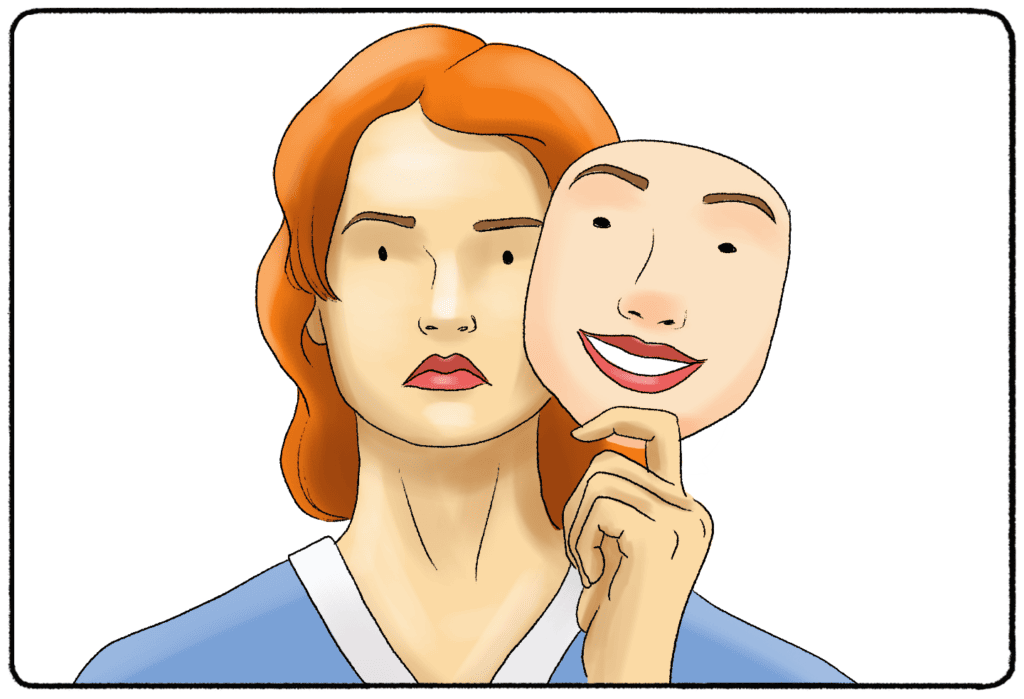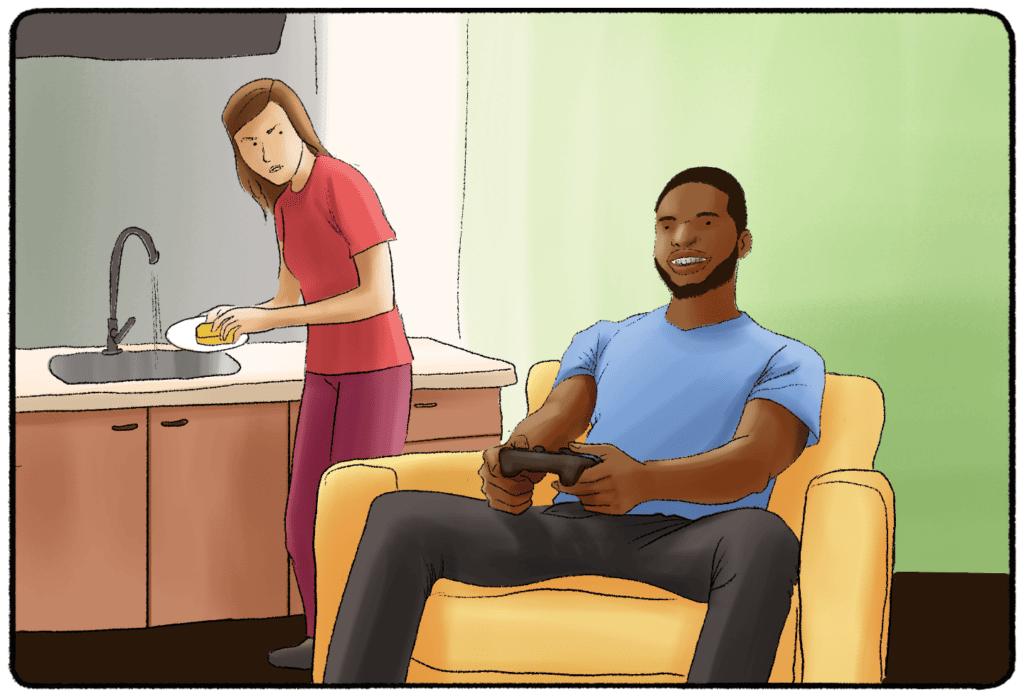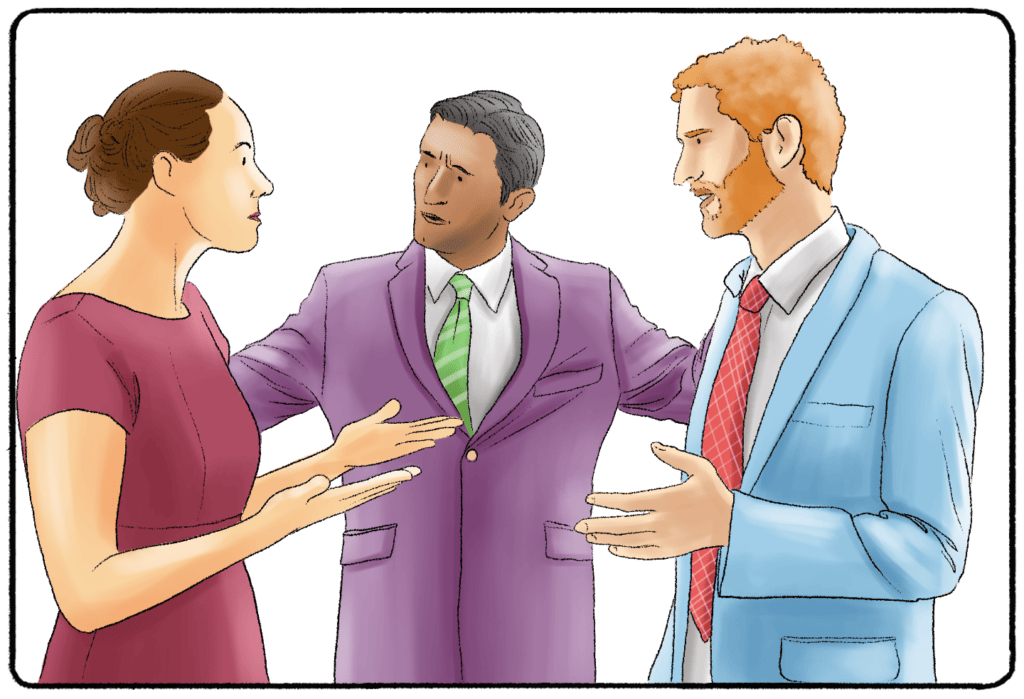You are probably here wanting to learn what passive aggressive behavior is, and you're definitely in the right spot. In this article, we will be going over the psychological definition of it, along with some examples to help you better understand the signs.
Everyone displays this type of behavior at some point in their lives. You and the people you’re fighting with could take some advice from this page.
What Is Passive-Aggression?
Passive aggression is a form of passive hostility that avoids direct action or communication. It is often characterized by inaction. For example, showing up late to a meeting may be considered passive-aggression. Failing to engage in a dialogue about what is upsetting you may also be considered passive aggression.

Why Passive Aggression Is Bad For Relationships
People engage in passive-aggressive behaviors to avoid directly confronting issues that are bothering them. But people are not mind readers. When they see someone engaging in passive aggressive behaviors, they cannot always guess the hidden intentions behind those behaviors. The person receiving the passive aggressive behavior may respond with more passive aggressive behavior, and the bad behavior spirals into a negative relationship.
Passive Aggressive Examples
There are a lot of transitions that you need to make in college. You’re more independent. You may be away from your family. You have to cook every meal for yourself. But no adjustment is harder (or more rewarding) than learning to live with roommates.
Maybe you loved your college roommates. They became your best friend or the maid of honor at your wedding. Or maybe the exact opposite happened because you had a passive aggressive roommate.

Passive Aggressive Roommate Behaviors
Even if you loved your roommates, you probably had friends or classmates who hated their roommates. You know the type. The roommate that would leave snarky notes around the house asking everyone to clean up. The roommate that would blast loud music at night, and when asked to turn it out, turned it up even higher. Roommate problems often boil down to one thing: a lack of communication, which leads to passive-aggression.
Passive-aggressive behavior is common in fights between roommates. But you also might experience passive-aggression in conflicts with your coworkers, neighbors, family members, or significant other. This type of behavior can seriously harm your relationships. Problems that are “no big deal” can become screaming matches. Conflicts that are easy to resolve become months-long sagas. You might not even recognize a problem until it blows up in your face - and it’s too late to resolve.
More Passive Behaviors Examples
One of the best ways to avoid serious conflicts is to recognize and halt passive-aggressive behavior. Passive-aggressive behavior includes:
- Procrastination or doing tasks at the last minute
- Backhanded compliments, sarcasm, or sly insults
- Avoiding confrontation altogether
- Blaming someone else for a problem that the person can resolve
Why Do People Engage in Passive-Aggressive Behaviors?
The most common reason people engage in passive-aggressive behaviors is because they are uncomfortable with confrontation. Sitting down with a roommate and telling them that they’re tired of seeing dirty dishes in the sink may be uncomfortable. Instead, they decide to “send the roommate a message” by putting the dirty dishes on their bed.
Drastic moves like this may also be linked to general immaturity. No wonder it occurs so often in college students living with their first roommates!
Passive-aggression may also be a response to overwhelming stress. Colonel William Menninger was the first psychiatrist to write about passive-aggression. He described how soldiers in World War II would engage in passive-aggressive behaviors as a way to avoid openly defying orders. Menninger believed that these behaviors were a reaction to the routine stress faced by soldiers in the military at that time.
How to Confront a Passive-Aggressive Person
Unfortunately, passive aggression does not help a person overcome stress or communicate a message effectively. Sitting down with a roommate and looking for a solution to the piles of dirty dishes often yields better results than dumping the dishes on the roommate’s bed. After all, the “dirty” roommate may not see that the dishes are an eyesore. The roommate may be failing to clean the dishes due to gripes of their own. Passive-aggressive behavior often leads to more passive-aggressive behavior, so it’s important to stop it in its tracks.
If you witness passive-aggressive behavior at work or home, don’t take it personally. Again, this behavior is often a response to stress or discomfort. Making the passive-aggressive person more stressed and uncomfortable is unlikely to solve the problem.
Give the person room to share their feelings and express their issues. Often, these issues come down to miscommunication or different expectations. Maybe you didn’t know that your roommate expected the dishes to be done within 24 hours. Or maybe you thought giving more tasks to your coworker would empower them, but in reality, they feel overwhelmed.

Creating this safe space for discussion is key - but it’s also important to be patient. It’s not always possible to deal with stress or the fear of confrontation overnight. Continue the conversation and give the person time to process their feelings as they develop the ability to handle issues head-on.
How to Avoid Passive-Aggressive Behaviors
Maybe your roommates aren’t the problem. You may recognize that you have been passive-aggressive. What can you do to resolve conflicts without passive aggression?
A similar approach will help you. You need to have a conversation with the person or people that are making you upset. Does your roommate leave the dirty dishes out for you to clean them? Sit them down when they are free to have a conversation and look for a solution. Do you dread going to work every day? Instead of being late, look for ways that you can de-stress before or after the workday.
This is easier said than done! Confrontation isn’t easy. It takes time to adjust to these types of conversations, especially if you feel intimidated or don’t want to hurt anyone’s feelings. You may be able to face these fears with the help of a professional. A talk therapist can help you address root causes of your anxiety. A mediator can help to resolve much more pressing issues at work or home. Recruiting a third-party may help to ease the tension of say, talking about serious issues in your romantic relationship. Meditators may not be necessary in dealing with “roommate drama” - although bringing in a mutual friend that you trust to be partial can help both sides understand what is causing issues in the house.
Again, it’s not easy to confront issues head-on. It can be easier to leave notes around the house complaining about the dishes instead of sharing these thoughts to someone’s face. But learning how to handle confrontation will go a long way in your current relationships and in the future.



